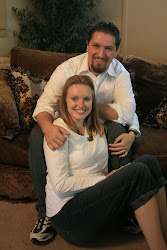UFO's fascinate me. I'm not really sure why. I grew up watching Star Trek and have an appreciation for good science fiction. I don't think that's the reason, though. I'm not sure I can pinpoint it. For some odd reason, I find the real stories of UFO's fascinating. Maybe its UFO stories, and maybe its broader - stories about the paranormal. That's why stories like this one from cnn.com, on UFO sightings around the world, intrigue me.
Rewind about 7 years. As I was leaving a Christian book store with a friend, one of the workers ran out behind us to give us copies of a book that the store just couldn't sell. It was called "Lights in the Sky and Little Green Men: A Rational Christian Look at UFO's and Extraterrestrials". Of course, it fascinated me. Christians writing about UFO's!? I mean, I've always joked about Ezekiel 1:4, but this seemed just too good to be true! As soon as I got home, I started reading the book and was surprised at what I found. I was expecting half-baked theology using passages like the one from Ezekiel, Daniel or Revelation. However, what I found made was very reasonable and made a lot of sense.
The book was written by three authors: one a political scientist, a clergyman-astronomer and lastly a philosopher-theologian. Here's a summary of what they had to say:
- There are hundreds of thousands of UFO sightings every year. Most of them can be explained away by natural phenomena. But some can't. Thousands in fact.
- The government can't cover up things like this. Its just too big and would involve too many people. It would leak eventually.
- The phenomena often defy principles of physics. Therefore they are probably not physical phenomena
- UFO's are not real. Rather, the 'unexplainable' events (sightings, abductions) very well might be spiritual/demonic activity.
- You are crazy. Those ideas are foolishness. Don't bring that drivel here.
- Your experiences are valid - come join our group and find meaning and purpose!
The Connection with Emergent Theology (yes - I'm getting to the point)
I've not been much connected with Emergent theology - just the random book or article or blog post. However, Brian McLaren, the un-offiicial 'spokesman' of the Emergent Church has recently written a new book called "A New Kind of Christianity." I've not read the book itself, though I've read a little bit of what McLaren believes as well as a critique of the book by Kevin DeYoung (Part 1 & Part 2), the pastor at Alison's home church in Michigan. Overall, I would agree with DeYoung on his analysis and theological position over McLaren's. (what exactly those things are I'll let YOU find out. This isn't about McLaren's theology directly).
So the question I want to answer is this: if McLaren is so wrong (as I believe he is), why are so many people flocking to his ideas about Christianity?
Many people have questions or ideas about Christianity that seem to get pushed to the side, or perceive that they are being harshly dealt with. I think that there are some valid questions about life, Jesus, God, sexuality and other things. When these questions are asked, many may feel they are presented with two options:
- You are crazy. Those ideas are foolishness. Don't bring that drivel here.
- Your experiences are valid - come join our group and find meaning and purpose!
Here are four very valid questions that need a thoughtful, loving response from the Church.
- How does Christianity fit with justice for the nations?
- I connect with God in a way that's different than the "head-centered" churches I've been to. I'm artsy - how do I connect with God in a way that's meaningful to me?
- I have questions about my sexuality, and am not sure what to do.
- I'm having a hard time reconciling my experiences of pain, a seemingly 'angry' God in the Bible and my idea of who Jesus is.






No comments:
Post a Comment